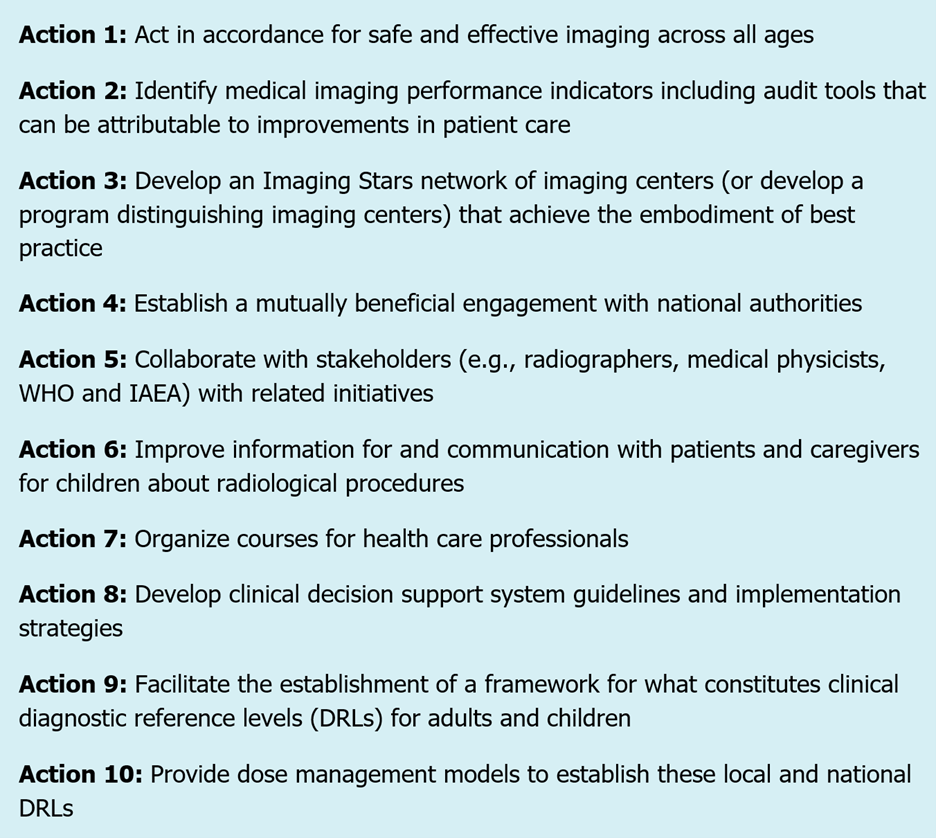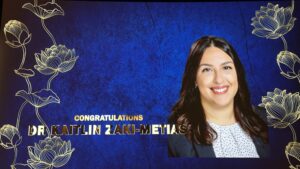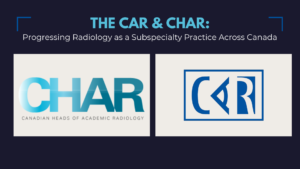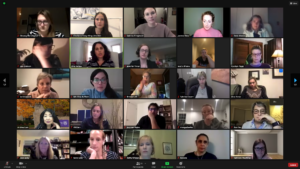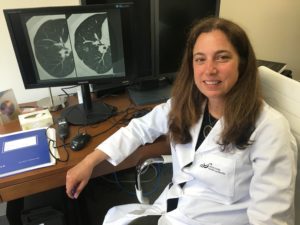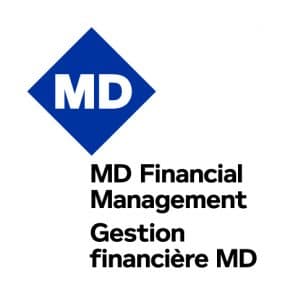The CAR Equity, Diversity, and Inclusion (EDI) Working Group is excited to announce the release of a new EDI toolkit document. This accomplishment is the result of collaborative efforts led by Dr. Charlotte Yong-Hing and the dedicated members of the EDI Working Group. Sincere gratitude is extended to the volunteers who contributed their time and unwavering dedication to this significant endeavour. [Read more…] about A Comprehensive Toolkit for Promoting Equity, Diversity, and Inclusion in Radiology Medicine
Search Results for: promoting
Promoting Breast Cancer Awareness in Canada
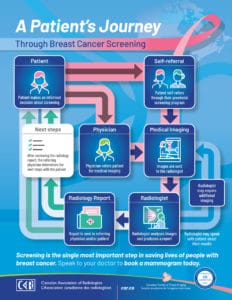
In recognition of Breast Cancer Awareness Month, the CAR has created an electronic and print version poster, A Patient’s Journey Through Breast Cancer Screening, for radiologists to showcase at their workplace and on social media. Help us raise awareness for this important cause and promote the essential role of radiologists in diagnosing breast cancer by displaying this poster.
Read more about the CAR’s Breast Cancer Awareness initiatives in our news release describing the importance of medical imaging in the diagnosis and management of breast cancer, featuring Dr. Jean Seely, CAR member, President of the Canadian Society of Breast Imaging, Head of Breast Imaging at the Ottawa Hospital and Regional Breast Imaging Lead, and Ontario Screening Program.
Breast Cancer Awareness and the Importance of Screening, Dr. Ania Kielar (October 2020)
Network with Colleagues in Your Subspecialty and Meet the Affiliate Societies at CAR 2024!
Representatives from the five CAR Affiliate Societies will be at CAR 2024 and are looking forward to connecting with you! Check out all the CAR Affiliate Societies’ upcoming networking opportunities.
Business Meetings
Attendees are invited to participate in a live discussion around key topics facing their subspecialty in radiology. Come to network with your colleagues, share best practices, and gain an overview of the current guidelines, education, and new initiatives on the horizon. This is your opportunity to connect and gather with your colleagues in your subspecialty. All are welcome to attend!
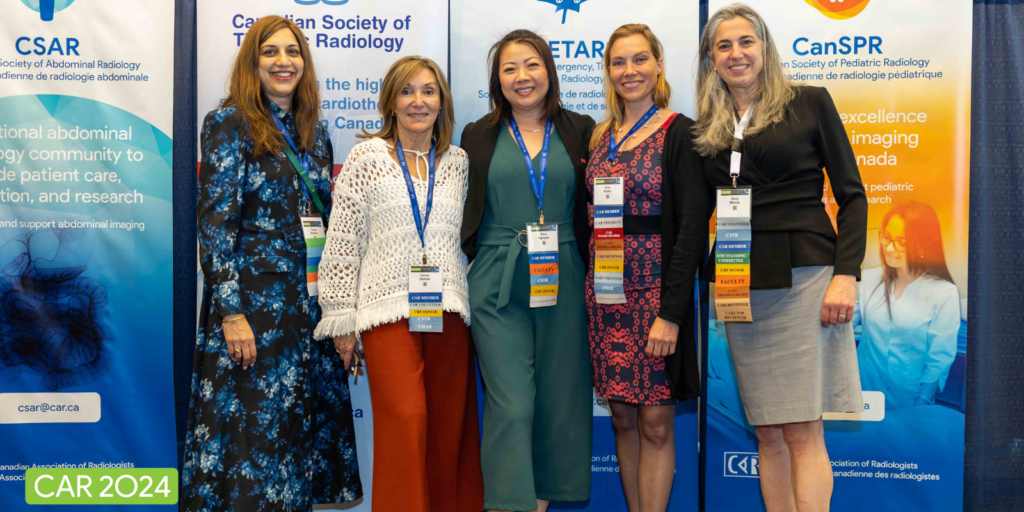

Networking Dinner
Join the Affiliate Societies for a networking evening!
Dinner reservations have been made for Thursday, April 11 at Pangea restaurant at 7:00 pm.
While the CAR is organizing and promoting the event for all Affiliate Societies, members are expected to cover their costs.
Affiliate Societies Vendor Cocktail Spotlight
The Affiliate Societies will be showcased during the CAR 2024 Vendor Cocktail on Friday, April 12 from 4:15 to 5:45 pm in the exhibit hall.
This will be a great opportunity to network with the Affiliate Societies. They will happily answer any questions you have!
Don’t miss out on any opportunities and join the Affiliates Societies today! Membership fees are complimentary if you are a current CAR member. Join through the CAR member portal or by emailing [email protected].

CAR 2024 is Your Chance to Get Involved with the Affiliate Societies
The Affiliate Societies are an important part of the CAR and are critical to creating the educational content featured at CAR 2024. These groups are collections of experts who are dedicated to representing their subspecialty and disseminating their expertise. In addition to developing relevant educational sessions each year, the Affiliate Societies take the opportunity to meet CAR members by holding Business Meetings and a Networking Dinner in conjunction with CAR 2024.
If you are someone who is interested in getting involved with other Canadian radiologists in your subspecialty, these are can’t-miss events, presenting opportunities to further your career and expand your professional network with like-minded individuals.
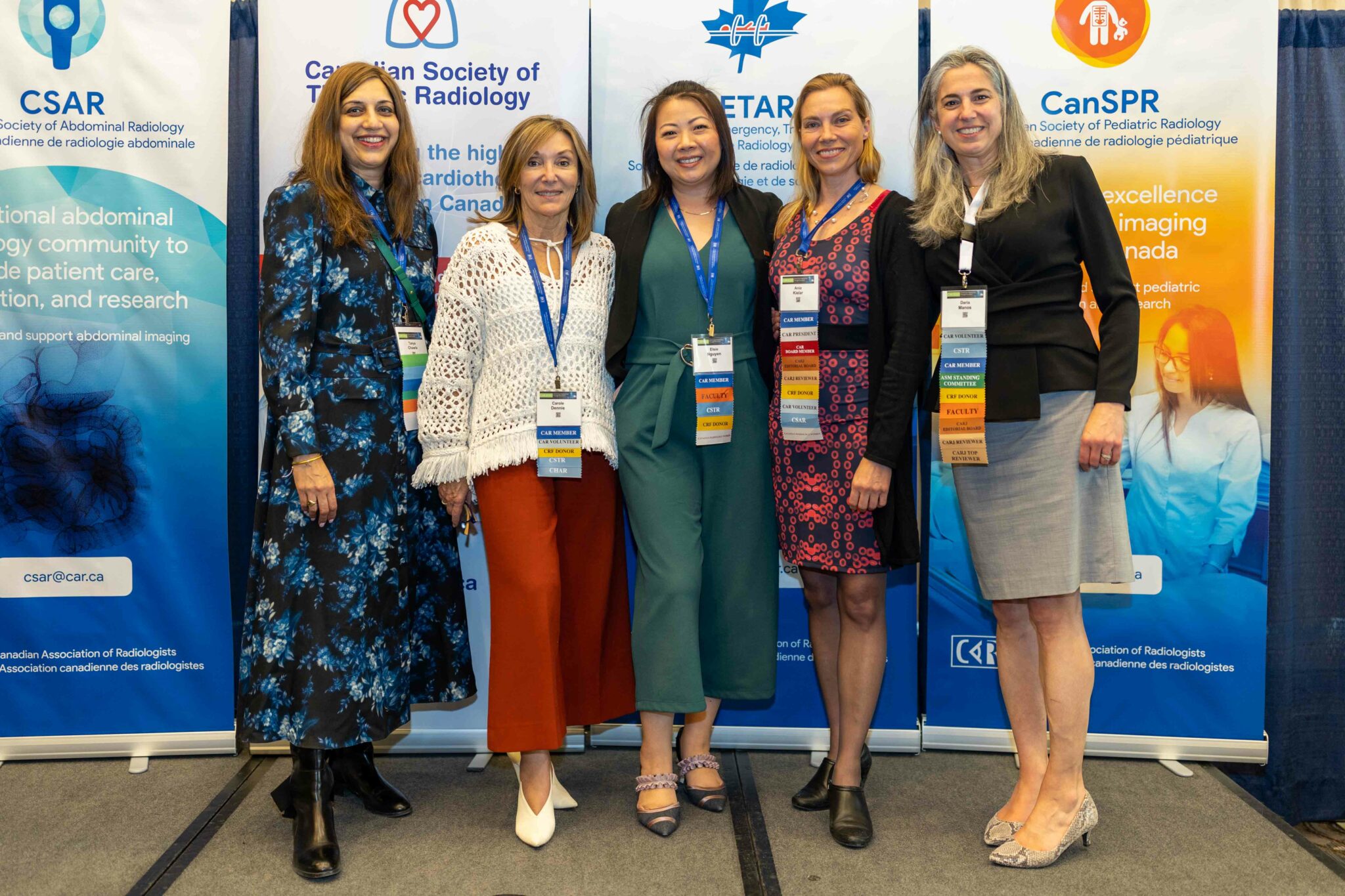
President: Dr. Michael Patlas
The CETARS business meeting is an opportunity to learn more about this CAR Affiliate Society and to participate in discussions around key topics facing emergency, trauma and acute radiologists in Canada. Dr. Micheal Patlas welcomes all radiologists and radiologists-in-training to attend.
Thursday, April 11
11:40am-12:40pm ET

Networking Dinner
Business can’t be concluded without the chance to network!
The Affiliate Societies will jointly host a Networking Dinner in a fun and casual atmosphere, meant for current members to catch up and reconnect while also affording prospective members the chance to be welcomed and get to know others with similar interests in their subspecialty.
- Thursday, April 11
- 7pm ET
- Pangea Restaurant
While the CAR is organizing and promoting the Networking Dinner for all Affiliate Societies, participants are expected to cover their costs.
Register today and RSVP to the Networking Dinner and your desired Business Meeting before March 28.
Canadian Society of Skeletal Radiology (CSSR)

About
Vision
A national physician community for the maintenance of excellence in musculoskeletal radiology.
Mission
The Canadian Society of Skeletal Radiology (CSSR) is a network of radiologists dedicated to promoting and advancing musculoskeletal imaging. The society strives to maintain excellence and promote knowledge in the performance of musculoskeletal diagnostic and interventional imaging studies. It also aims to facilitate networking for teaching and advocacy for musculoskeletal imaging across the country and internationally.
Goals
- Provide medical education in the practice of musculoskeletal radiology for trainees and practicing radiologists
- Encourage musculoskeletal research mentorship and networking
- Lead the development and/or update of CAR-driven imaging guidelines, standards, and appropriateness criteria for optimizing patient care in the field of musculoskeletal radiology
President's Message

It is an honour and a privilege to accept the position of inaugural president of the new Canadian Society of Skeletal Radiology (CSSR)! I am a musculoskeletal radiologist in the Montreal region of Quebec, Canada, currently in a clinical practice of diagnostic and interventional imaging. Having previously practiced in English and French in large academic settings both in Canada and abroad has given me a good perspective and appreciation of the unique strengths and culture of musculoskeletal imaging in this country.
The CSSR strives to increase visibility of Canadian musculoskeletal radiologists both amongst us and internationally. For our members, we hope the Society will be a mentor and guide to help with their clinical practice and create a sense of community across Canada in musculoskeletal radiology.
In this rapidly changing healthcare environment, it is especially important for us as physicians and radiologists to ensure high standards in patient care relating to musculoskeletal imaging and intervention. As such, the goal of the CSSR is to maintain excellence through practice guidelines, advocacy, and educational initiatives.
I am joined by a stellar Executive Committee in launching this new Society. I hope you will consider becoming an active member of the CSSR!
Viviane Khoury, BSc, MD, FRCPC
Announcing the New President and Vice-President of the Canadian Society of Pediatric Radiology
The CAR extends a warm welcome to the incoming Canadian Society of Pediatric Radiology (CanSPR) President Dr. Elka Miller, and Vice-President Dr. Katya Rozovsky. We look forward to working with them to achieve the goals and advance the mission of the CanSPR. [Read more…] about Announcing the New President and Vice-President of the Canadian Society of Pediatric Radiology
Creating Meaningful Impact with Equity, Diversity, and Inclusion: An Interview with Dr. Faisal Khosa
Authored by Doctors of BC
Dr. Faisal Khosa, a well know CAR member, graduated from medical school in Pakistan and completed postgraduate training and board certifications in Ireland, America, and Canada. He has an MBA in leadership and equity, diversity, and inclusion. [Read more…] about Creating Meaningful Impact with Equity, Diversity, and Inclusion: An Interview with Dr. Faisal Khosa
Network with the Affiliate Societies at CAR 2023
Representatives from the CAR Affiliate Societies will be at CAR 2023 and are looking forward to connecting with you! Check out all the CAR Affiliate Societies’ upcoming networking opportunities. [Read more…] about Network with the Affiliate Societies at CAR 2023
Getting Social at CAR 2023
The CAR Annual Scientific Meeting is returning to Montreal as an in-person event and that means there will be numerous opportunities to catch-up with colleagues and meet new members of the Canadian radiology community. [Read more…] about Getting Social at CAR 2023
CAR Recommendations to Government Take on Heightened Relevance During Breast Cancer Awareness Month
October is Breast Cancer Awareness Month in Canada, and throughout the month the CAR promoted its recommendations for patient breast health and demographic information on the impact of breast cancer on Canadians. With Canada’s healthcare system continually managing the ongoing impacts of the pandemic, this year’s Breast Cancer Awareness Month places a heightened relevance on the CAR’s recommendations to the Federal Government in the 2023 Pre-Budget Submission. [Read more…] about CAR Recommendations to Government Take on Heightened Relevance During Breast Cancer Awareness Month
Canada Safe Imaging (CSI)

About
Canada Safe Imaging (CSI) was formed in 2015 to address the need for a national strategy and action plan in Canada, to strengthen medical radiation protection in patients and foster a culture of radiation safety in healthcare in Canada.
CSI represents a collaborative undertaking between government agencies, professional associations, universities, colleges, national research institutions and hospitals. Within each sector, a multi-disciplinary approach has also been adopted, involving partners, researchers, technologists, medical and health physicists and other health care providers using or prescribing the use of radiation.
Canada Safety Imaging is part of a network of radiation safety campaigns worldwide under the auspices of the International Society of Radiology.
Mission
To provide Canadian contextualized guidelines and tools for patient radiation safety.
Responsibilities
- Promote knowledge translation and adoption of and adherence to good radiation safety practices and standards as they relate to the Canadian medical environment
- Undertake future potential strategies and initiatives to enhance medical imaging radiation safety and care
- Shape and promote a strategic research agenda for radiation protection of patients in Canada
Context
Today’s medical imaging technologies provide unprecedented visibility into the body. As medical imaging technologies and techniques continue to evolve rapidly so has their utilization and subsequent exposure of patients to ionizing radiation.
Even if the technology has significantly improved and doses of radiation have decreased, the risk of exposure did not disappear and needs to be taken into consideration when tests using ionizing radiations are prescribed. As many things we take for granted, we don’t see any more the risks attached to the technology as it becomes part of our life. But there is a need to remain vigilant, raise awareness and educate healthcare professionals and population at large about the risks and benefits of ionizing radiations in medicine.
In 2012 the International Atomic Energy Agency (IAEA) and the World Health Organization (WHO) launched an initiative that was supported by 77 countries and 16 organizations, titled the “Bonn Call For Action,” which outlines ten major strategies for promoting radiation protection. In response, a new campaign was formed, which brings together many stakeholders to strengthen medical radiation protection across Canada following an inclusive approach. The delivery of health care is a provincial responsibility, but a focused national strategy and a unified effort is needed to ensure radiation safety in medical imaging for all Canadians.
Canada Safe Imaging (CSI) was formed to address this need for a national strategy and action plan as it relates to radiation safety for medical imaging care in Canada.
RSNA Appoints CAR’s Dr. Bo Gong for Artificial Intelligence Trainee Editorial Board
Incorporating Artificial Intelligence (AI) into the field of radiology is a significant priority for the Canadian Association of Radiologists (CAR), and one distinctive CAR member has plans to move the matter forward internationally. Dr. Bo Gong, CAR AI Standing Committee member and Editor-in-Training at the CAR Journal (CARJ), has been appointed to the Radiological Society of North America’s (RSNA) AI Trainee Editorial Board for a two-year term that begins in January 2023. [Read more…] about RSNA Appoints CAR’s Dr. Bo Gong for Artificial Intelligence Trainee Editorial Board
The CAR & CHAR: Progressing Radiology as a Specialty Practice Across Canada
For over four decades, the Canadian Heads of Academic Radiology (CHAR) have been an expanding authority in promoting radiology education, research, and academic practice among Canadian academic institutions. The CHAR is an association that brings together the Heads of the 16 academic radiology departments in Canadian universities. [Read more…] about The CAR & CHAR: Progressing Radiology as a Specialty Practice Across Canada
Peer Learning
The Canadian Association of Radiologists Working Group on Peer Learning was assembled to review the literature on peer review and peer learning and provide an up-to-date report for the radiology community. This guide provides definitions of terms and a synthetic evidence review regarding peer review and peer learning. It presents important aspects of what makes an effective peer learning program, as well as best practices for implementing such a program. This guide is intended to be a living document that will be updated regularly as new data emerges and peer learning continues to evolve in radiology practices.
Highlights
- Peer learning is a quality initiative used to identify potential areas of practice improvement, both on a patient level and on a systemic level. Opportunities for peer learning include review of prior imaging studies, evaluation of cases from multidisciplinary case conferences, and review of radiology trainees’ call cases.
- Peer learning is non-punitive and focuses on promoting life-long learning. It seeks to identify and disseminate learning opportunities and areas for systems improvement compared to traditional peer review.
- Learning opportunities arise from peer learning through both individual communication of cases reviewed for routine work, as well as anonymized presentation of aggregate cases in an educational format. In conjunction with other tools such as root cause analysis, peer learning can be used to guide future practice improvement opportunities.
- This guide provides definitions of terms and a synthetic evidence review regarding peer review and peer learning, as well as medico-legal and jurisdictional considerations. Important aspects of what makes an effective peer learning program and best practices for implementing such a program are presented.
Inaugural Dalhousie Women Physician Leadership Event – A Success!
On Saturday, October 23, a group of radiology leaders assembled virtually to discuss women leadership in radiology and to share best practices. Dr. Daria Manos, a professor of radiology at Dalhousie University and President of the Canadian Society of Thoracic Radiology, a Canadian Association of Radiologists (CAR) affiliate, championed this initiative with assistance from Dalhousie Radiology and a steering committee of radiologists from across the country. Thanks to support from the CAR, Canadian Radiological Foundation (CRF) as well as GE Healthcare, the 80 participants benefited from an impressive roster of speakers. [Read more…] about Inaugural Dalhousie Women Physician Leadership Event – A Success!
Learn More about CETARS
Meet the Canadian Emergency, Trauma and Acute Care Radiology Society (CETARS), one of CAR’s four affiliate societies. CETARS officially joined as a CAR affiliate on July 13, 2020, after the inaugural meeting of their Executive Committee. Working under the direction of the CAR Board of Directors, CAR Affiliate Societies provide the opportunity for close collaboration on education, research, and advocacy activities with the radiology community. Working together the CAR can deliver the most value for members while maintaining distinct mandates. [Read more…] about Learn More about CETARS
Meet the Canadian Society of Pediatric Radiology
The Canadian Society of Pediatric Radiology (CanSPR) is a new CAR affiliate society and recently launched their new logo and webpage. CanSPR strives to encourage educational, research and networking connections to maintain the highest standards of pediatric imaging across Canada. Representation of the founding members include senior leading pediatric radiologists from across the country.
[Read more…] about Meet the Canadian Society of Pediatric Radiology
Announcing the New President of the Canadian Society of Thoracic Radiology (CSTR)
The CAR would like to extend a warm welcome to Dr. Daria Manos, who assumed the role of President of the Canadian Society of Thoracic Radiology (CSTR), an Affiliate Society of the CAR, on May 1, 2021. We also want to take this opportunity to sincerely thank Dr. Carole Dennie for her amazing leadership and dedication as the founding President of the CSTR. Dr. Dennie will continue to serve on the CSTR Executive in the role as Past President and Dr. Elsie Nguyen will be assuming the role of Vice President.
[Read more…] about Announcing the New President of the Canadian Society of Thoracic Radiology (CSTR)
Canadian Society of Pediatric Radiology (CanSPR)

About
The society strives to encourage educational, research and networking connections to maintain the highest standards of pediatric imaging across Canada. Representation include senior leading pediatric radiologists from across the country.
Vision
Promoting excellence in pediatric imaging across Canada.
Mission
The Canadian Society of Pediatric Radiology (CanSPR) is a network of radiologists dedicated to promoting and advocating for pediatric imaging. The society aims to promote the highest standards of care through education and creation of evidence-based guidelines and protocols for standardization. It also aims to facilitate networking for research and advocacy for pediatric imaging needs across country.
Goals
The CanSPR is founded on members with an interest in advancing knowledge, learning or clinical expertise around pediatric radiology to communicate, meet, mentor and discuss research to further this interest. The society strives to encourage educational, research and administrative connections to maintain the highest standards of pediatric imaging across Canada. The role of CanSPR is to:
- Drive the appropriate, proper and safe use of radiological services in the patient-centered care of children
- Define principles of practice in the development of pediatric imaging guidelines, standards and appropriateness criteria
- Provide access to medical education in the practice of pediatric imaging for trainees and practicing radiologists
- Advocate for appropriate resources (human and material) necessary for the delivery of quality pediatric imaging services to Canadian children wherever they are situated
- Foster research in all aspects of pediatric imaging
President's Message
 Dr. Elka Miller is a Professor at the University of Toronto and a staff pediatric neuroradiologist at SickKids Hospital, Toronto, Canada. Previous Chief and Research Director of the Medical Imaging Department at CHEO, University of Ottawa from 2011-2022. She is actively involved in medical education and research with a special interest in Pediatric Neuroimaging, Fetal and Neonatal Imaging. Additionally, she is a reviewer for multiple international journals, and has received the Editor Recognition Award for reviewing with distinction from the Radiology Journal six times. Dr. Miller also received the RSNA Roentgen Resident/Fellow Research Award in 2008 and the 2018 Anne G. Osborn ASNR International Outreach Professor Program award to represent the American Society of Neuroradiology.
Dr. Elka Miller is a Professor at the University of Toronto and a staff pediatric neuroradiologist at SickKids Hospital, Toronto, Canada. Previous Chief and Research Director of the Medical Imaging Department at CHEO, University of Ottawa from 2011-2022. She is actively involved in medical education and research with a special interest in Pediatric Neuroimaging, Fetal and Neonatal Imaging. Additionally, she is a reviewer for multiple international journals, and has received the Editor Recognition Award for reviewing with distinction from the Radiology Journal six times. Dr. Miller also received the RSNA Roentgen Resident/Fellow Research Award in 2008 and the 2018 Anne G. Osborn ASNR International Outreach Professor Program award to represent the American Society of Neuroradiology.
Elka Miller, MD, FRCPC
CAR 2021 Accredited Symposia
We are pleased to offer two accredited symposia on Saturday, May 1 in conjunction with the CAR 2021 Virtual Annual Scientific Meeting. Clinical Perspective and Radiologic Screening for Chronic Thromboembolic Pulmonary Hypertension (CTEPH) Interactive Workshop and Physician Wellness – Burnout in Canadian Radiology: Stories from the Trenches. Both sessions are accredited under Section 1 of the MOC Program of the Royal College.

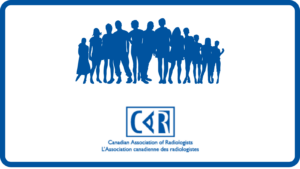





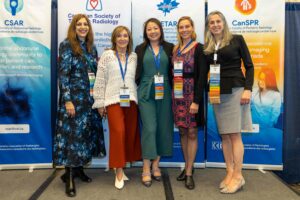

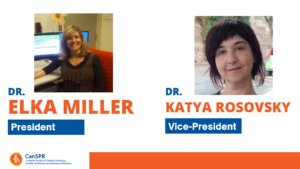

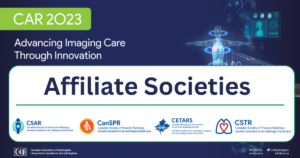

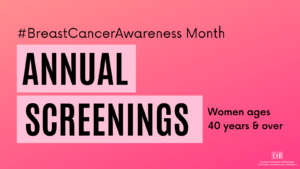
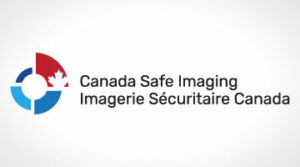
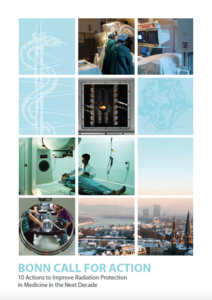 participants and observers from 77 countries and 16 organizations. An important outcome of the conference was the identification of responsibilities and a proposal for priorities for stakeholders regarding radiation protection in medicine for the next decade. This specific outcome is the
participants and observers from 77 countries and 16 organizations. An important outcome of the conference was the identification of responsibilities and a proposal for priorities for stakeholders regarding radiation protection in medicine for the next decade. This specific outcome is the 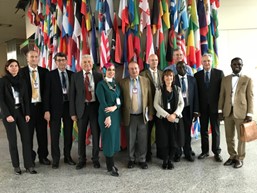 In December 2017, the IAEA, in partnership with the WHO and the Pan-American Health Organization, hosted the International Conference on Radiation Protection in Medicine: Achieving Change in Practice in Vienna, Austria. The goal of this conference was to provide an overview of the actions and developments since the 2012 Bonn conference.
In December 2017, the IAEA, in partnership with the WHO and the Pan-American Health Organization, hosted the International Conference on Radiation Protection in Medicine: Achieving Change in Practice in Vienna, Austria. The goal of this conference was to provide an overview of the actions and developments since the 2012 Bonn conference.